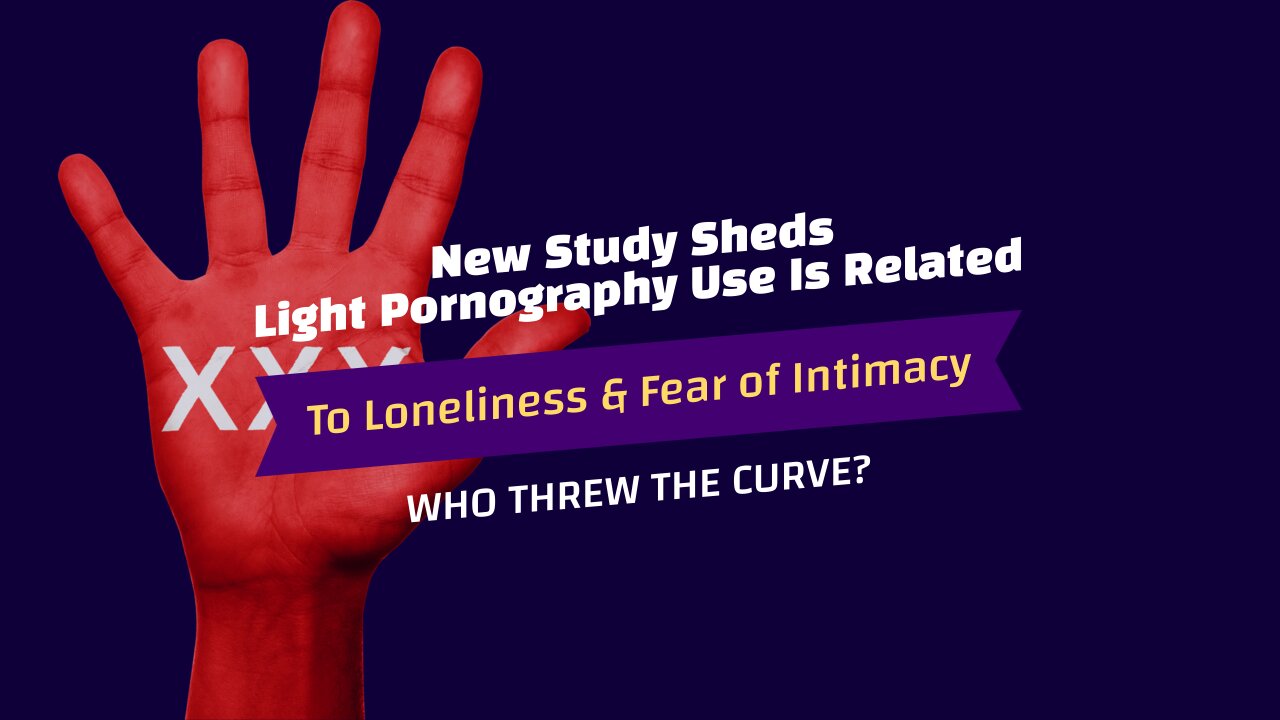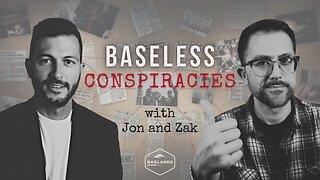Premium Only Content

New Study Sheds Light Pornography Use Is Related To Loneliness & Fear of Intimacy
Exploring the Relationship between Pornography Use, Loneliness, and Fear of Intimacy
We will examine the intricate relationship between pornography use, loneliness, and fear of intimacy. The aim of this essay is to synthesize existing literature and critically analyze the impact of pornography use on individuals' loneliness and their fear of intimacy. The research question this essay explores is: Is pornography use related to loneliness and fear of intimacy?
Pornography use has become a widespread phenomenon in the digital age. The accessibility, affordability, and anonymity of Internet pornography make it easy for individuals to engage in viewing sexually explicit material. However, the effects of pornography on users' emotional and relational well-being are still under intense scrutiny and debate. Although some argue that pornography can serve as a safe outlet for sexual exploration, others contend that it can lead to isolation, loneliness, and a fear of intimacy (Grubbs, Volk, Exline, & Pargament, 2015). This essay delves into the complex relationship between pornography use, loneliness, and fear of intimacy.
Several studies have examined the relationship between pornography use and loneliness. Butler, Pereyra, Draper, Leonhardt, and Skinner (2018) found a positive correlation between pornography use and loneliness, suggesting that individuals may turn to pornography as a coping mechanism for feelings of loneliness. Similarly, Yoder, Virden, and Amin (2018) noted that some individuals might use pornography to escape from feelings of social isolation and rejection.
In terms of fear of intimacy, there is also a body of literature that indicates a possible correlation with pornography use. Lambert, Negash, Stillman, Olmstead, and Fincham (2012) found that higher pornography use was associated with lower levels of relationship intimacy and satisfaction. This suggests that heavy pornography use might lead to or exacerbate a fear of intimacy.
Upon examining the existing literature, it becomes apparent that pornography use is often associated with loneliness and fear of intimacy. However, the nature of this relationship is complex. It is plausible that loneliness could drive individuals towards pornography use as a coping mechanism. Conversely, heavy pornography use might also lead to feelings of loneliness as users might isolate themselves or feel disconnected from others.
Similarly, the relationship between pornography use and fear of intimacy is multifaceted. On one hand, individuals who fear intimacy might turn to pornography as a safer, less emotionally demanding alternative to real-life sexual interactions. On the other hand, frequent pornography use might lead to unrealistic expectations about sexual relationships, which could increase fear of intimacy.
It is also important to consider that the relationship between pornography use, loneliness, and fear of intimacy could be bidirectional or cyclical. For example, an individual might initially turn to pornography due to loneliness, but their frequent use could subsequently amplify their fear of intimacy, leading to further isolation and loneliness.
Although the existing literature provides some evidence of a relationship between pornography use, loneliness, and fear of intimacy, the nature of this relationship is complex and multifaceted. It is evident that more research is needed to disentangle these relationships and explore the underlying mechanisms. By doing so, it will be possible to develop more effective interventions to help individuals who are struggling with issues related to pornography use, loneliness, and fear of intimacy.
References:
Butler, M. H., Pereyra, S. A., Draper, T. W., Leonhardt
-
 LIVE
LIVE
FreshandFit
7 hours agoAfter Hours w/ Girls
19,056 watching -
 1:43:40
1:43:40
Badlands Media
10 hours agoBaseless Conspiracies Ep. 142
67.4K6 -
 2:04:08
2:04:08
Inverted World Live
4 hours agoTop Secret Area 51 Project Spawns 'Invisible Enemy' | Ep. 77
36.4K4 -
 2:51:11
2:51:11
TimcastIRL
4 hours agoUNHINGED Liberals PROTEST Colbert Cancellation In NYC, Propaganda Machine IS COOKED | Timcast IRL
162K71 -
 2:42:48
2:42:48
The Quartering
4 hours agoToday's News Chat & Act 2 Of Expedition 33
37.8K3 -
 LIVE
LIVE
SpartakusLIVE
6 hours agoMonday MOTIVATION || Games w/ the BOYS into the NIGHT
530 watching -
 3:16:02
3:16:02
Barry Cunningham
5 hours agoNEWS ON THE PLOT AGAINST THE PRESIDENT AND IT'S A MOVIE NIGHT!
67.1K45 -
 2:00:32
2:00:32
Glenn Greenwald
7 hours agoWorld Finally Horrified by Israel's Atrocities in Gaza; Mass Starvation Expert Warns of Spiraling Crisis in Gaza; AOC Votes to Fund Israel's Iron Dome | SYSTEM UPDATE #489
83.2K121 -
 LIVE
LIVE
Spartan
5 hours agoSpartan - Pro Halo Player for OMiT | Scrims vs OMiT Black
179 watching -
 2:47:11
2:47:11
crgoodw1n
3 hours agoMonday stream Pt.2! Max Traders are almost here!
7.74K1